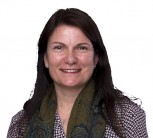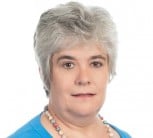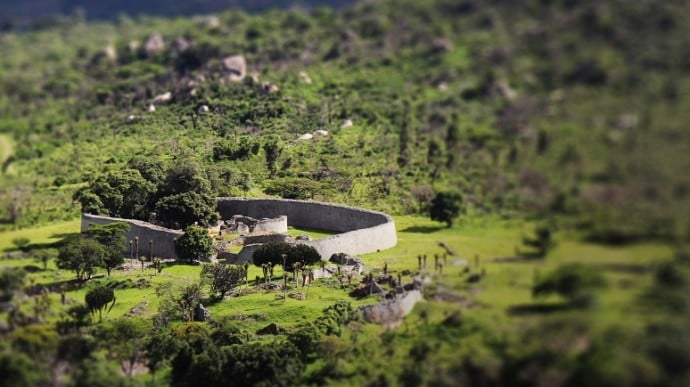A UP-led study has found that certain areas in South Africa are likely to experience more extreme rainfall, which is probably a feature of climate change.
Charlotte McBride and Prof Liesl Dyson. Source: Weather and Climate Extremes
May 16, 2023

Charlotte McBride is a PhD candidate at the University of Pretoria (UP), where she has been doing research for the past three years. She completed her undergraduate studies at the University of KwaZulu-Natal.
Her field of research contributes to the betterment of the world because it is vital for planning. According to McBride, understanding regional and local weather and climate extremes is key for planning purposes in sectors such as agriculture, health, disaster management and the built environment. This will give experts an idea of changes in the extent and frequency of extreme weather and climate phenomena.
“Such estimations would assist in the spatial allocation of resources to mitigate specific weather and climate hazards,” she says. “Similar analyses of possible future extreme climate scenarios are imperative to mitigate and adapt to climate-related disasters that are the result of climate change.”
In addition to her research duties, McBride also works at the South African Weather Service (SAWS), where she ensures that SAWS has quality, fit-for-purpose climate datasets that can be used for research. McBride says it is the work of the World Meteorological Organisation and the creation of an open-source climate data management system that is important if we are to manage weather and climate data effectively.
She says that her research matters because the more we know about the effects of climate change, the more we can plan for and hopefully adjust our behaviour to mitigate against the negative changes.
McBride is inspired in her research by world-renowned primatologist and anthropologist Dr Jane Goodall. In her book Reason for Hope, Dr Goodall emphasised that we look for ways to make the world a better place.
“As scientists, this should be our focus,” McBride says. “This should enable us to understand our world with the view to making it a better place to live and thrive in, and to ensure that we manage our natural resources with future generations in mind. I had the privilege of meeting this wonderful researcher in South Africa when she spoke at the National Science Festival in Makhanda [formerly Grahamstown] many years ago.”
McBride advises school learners or undergraduates who are interested in her field to find something that they are passionate about, to seek out people in that field to talk to and to job-shadow.
“Such interactions can confirm or lead you to discover other avenues of work that will be more enjoyable and exciting to participate in,” she says.
McBride is currently focused on getting her PhD. Once she has done that, she says she will focus on the next step. In her spare time, she enjoys bird-watching and spending time in nature.

Professor Liesl Dyson studied Meteorology at the University of Pretoria (UP), which is the only university in South Africa that offers a degree in Meteorology that complies with the World Meteorology Organisation’s training standards. Prof Dyson has been doing research at UP for 25 years, and says “the beauty of clouds inspired me to study meteorology”.
As an associate professor in Meteorology in the Department of Geography, Geoinformatics and Meteorology, research is part of what she does. The research that she and her students are involved in deals with understanding the character of severe weather phenomena, investigating the development mechanisms of these phenomena and finding ways to better predict these events. As for how her research contributes to the betterment of the world, she says that timeous warnings of severe weather could save lives and property.
Many of the postgraduate students who do research under her supervision are employed at the South African Weather Service.
“Together, we identify which weather phenomena needs further investigation, then set about improving the understanding and forecasting of these,” Prof Dyson explains. “At the moment, there is special emphasis on severe thunderstorms. We investigate thunderstorms by using radar and state-of-the-art numerical weather prediction products. However, other phenomena such as sand/dust storms and snow are also included in our research.”
Prof Dyson collaborates with the Natural Hazard Centre, which statistically analyses the hail data she generates by using numerical weather prediction data and a hail model. The result of this collaboration determines the risk of hail over South Africa.
A highlight for her was being awarded the Water Research Commission’s Knowledge Tree Innovation Award in 2019 for a project entitled ‘The impact of the predictability of continental tropical lows on hydrological modelling: Current state and future projections’. This award celebrates outstanding design, process and product development of innovative technologies. The research investigated and named a specific type of tropical weather system over southern Africa, which they called Africánes. The system is a tropical cyclone-like low-pressure system that develops over Africa and causes very heavy rainfall over the sub-continent.
Two of the master’s students working under her supervision received the prestigious Society of South African Geographers Master’s Bronze Medal, which is awarded to the best geography MSc completed by research dissertation within a given year in South Africa. Christina Liesker received the award in 2022 for her work on supercell identification using weather radar and Markus Geldenhuys in 2019 for his work on the dangerous mountain wave phenomena over the Eastern Cape.
Prof Dyson’s role model in meteorology is Dr Jan Taljaard.
“I had the privilege of working with him for a short while when I was a young forecaster at the South African Weather Bureau. I admire him so much because he was an expert in real weather. It was all about what was going on outside and he instilled in me a hunger to do the same. He authored several papers about synoptic circulation over South Africa, and even though he has long since passed away, these documents are still my go-to papers when I do my own research. I discover new insights every now and again.”
Prof Dyson hopes to play a small part in helping weather forecasters in South Africa to be enthusiastic about the weather, be excellent in their jobs and have the knowledge through training and research to issue forecasts of high quality.
Research shows that in a changing climate, severe weather events are increasing. On short time scales, weather forecasters are responsible for issuing warnings for these events. Prof Dyson’s research matters because it aims to help forecasters to issue such warnings.
She says many young people are interested in the weather because they see and experience the effect of climate change and want to get involved in helping to address arising issues. Others are simply fascinated by tropical cyclones (hurricanes) and tornadoes, and by clouds. She advises school learners that in order to study meteorology, they need to take mathematics and natural science as subjects at school.
“We use Newton’s second law and the laws of thermodynamics to model the atmosphere, and learners need the mathematical tools to do that.”
Prof Dyson loves gardening in her spare time and enjoys outdoors activities with her dogs.
 Story
Story
This edition is curated around the concept of One Health, in which the University of Pretoria plays a leading role globally, and is based on our research expertise in the various disciplines across healthcare for people, the environment and animals.
 Story
Story
Highly sophisticated water management techniques of ancient civilisations demonstrate the ingenuity of inhabitants who lived with limited water. It appears we need to look to the past to ensure a stable water supply in the future.
 Story
Story
A new study by researchers at the University of Pretoria (UP) and the University of Adelaide in Australia has revealed the real function of the giraffe’s long legs ¬– to reduce blood pressure.
Copyright © University of Pretoria 2025. All rights reserved.
Get Social With Us
Download the UP Mobile App